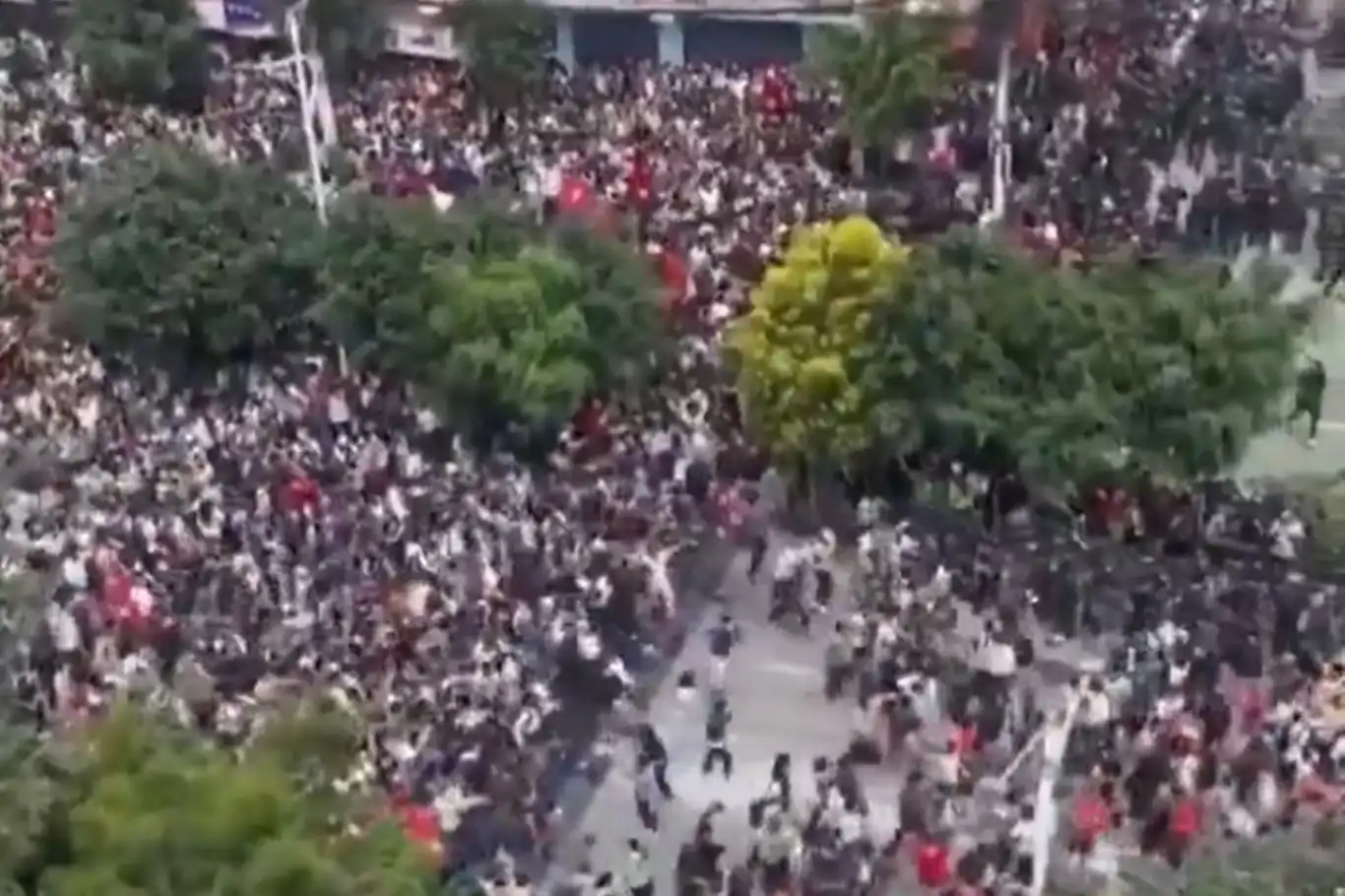14 killed, dozens injured in Nepal clashes over social media ban


At least 14 people were killed and dozens more injured in Nepal’s capital on Monday as violent clashes broke out between protesters and security forces following the government’s controversial ban on major social media platforms.
The unrest erupted after authorities moved to block access to 26 platforms, including Facebook, X, and YouTube, citing their failure to register with the Ministry of Communication and Information Technology. Officials insist the move is intended to curb fake news, hate speech, and online fraud, not to silence citizens. Still, millions of Nepalis who rely on these platforms for news, business, and entertainment say the ban represents an authoritarian crackdown on free expression.
Thousands of mostly young protesters, many identifying as “Generation Z activists,” poured into the streets of Kathmandu. Carrying placards reading “Enough is Enough” and “End to Corruption,” they converged near the parliament building. Tensions escalated when some demonstrators breached a restricted area, climbing over walls and security barriers.
Police responded with water cannons, batons, rubber bullets, and tear gas. “Tear gas and water cannons were used after the protesters breached into the restricted area,” police spokesman Shekhar Khanal said. A curfew was imposed around the parliament, and army units were deployed to enforce order, army spokesman Rajaram Basnet confirmed.
Authorities reported that two of the 26 banned platforms have since complied with registration requirements and been reinstated. Nonetheless, widespread disruptions continue, with many users turning to VPNs to bypass restrictions.
The violence has left at least 50 people hospitalized, several in critical condition. Human rights organizations have condemned the government’s actions, urging restraint. Amnesty International Nepal called for an independent investigation into the use of force, stressing the importance of upholding the right to peaceful assembly.
The protests have also gained traction online, with hashtags such as #NepalAgainstBan and #FreeTheInternet trending widely among Nepali users. Demonstrations have spread beyond Kathmandu to cities like Pokhara and Biratnagar, fueling nationwide unrest.
Prime Minister KP Sharma Oli is expected to address the nation later this week, amid mounting domestic anger and international concern. Digital rights groups warn that Nepal’s actions could set a dangerous precedent for internet censorship across South Asia.
For now, the capital remains tense, with security forces maintaining a heavy presence in anticipation of further protests. (ILKHA)
LEGAL WARNING: All rights of the published news, photos and videos are reserved by İlke Haber Ajansı Basın Yayın San. Trade A.Ş. Under no circumstances can all or part of the news, photos and videos be used without a written contract or subscription.
Turkish President Recep Tayyip Erdoğan emphasized the government’s commitment to education, describing it as the most important investment in the nation’s future, during his address at the 2025–2026 School Year Opening Ceremony held in Istanbul.
The United Nations Development Programme (UNDP) has announced plans to issue an urgent appeal in the coming days to mobilize assistance for families affected by the recent earthquake in eastern Afghanistan.
The United Nations has issued a stark warning that the Gaza Strip is on the brink of an unprecedented humanitarian disaster, with only a narrow and rapidly closing window to prevent famine from engulfing more of the population.